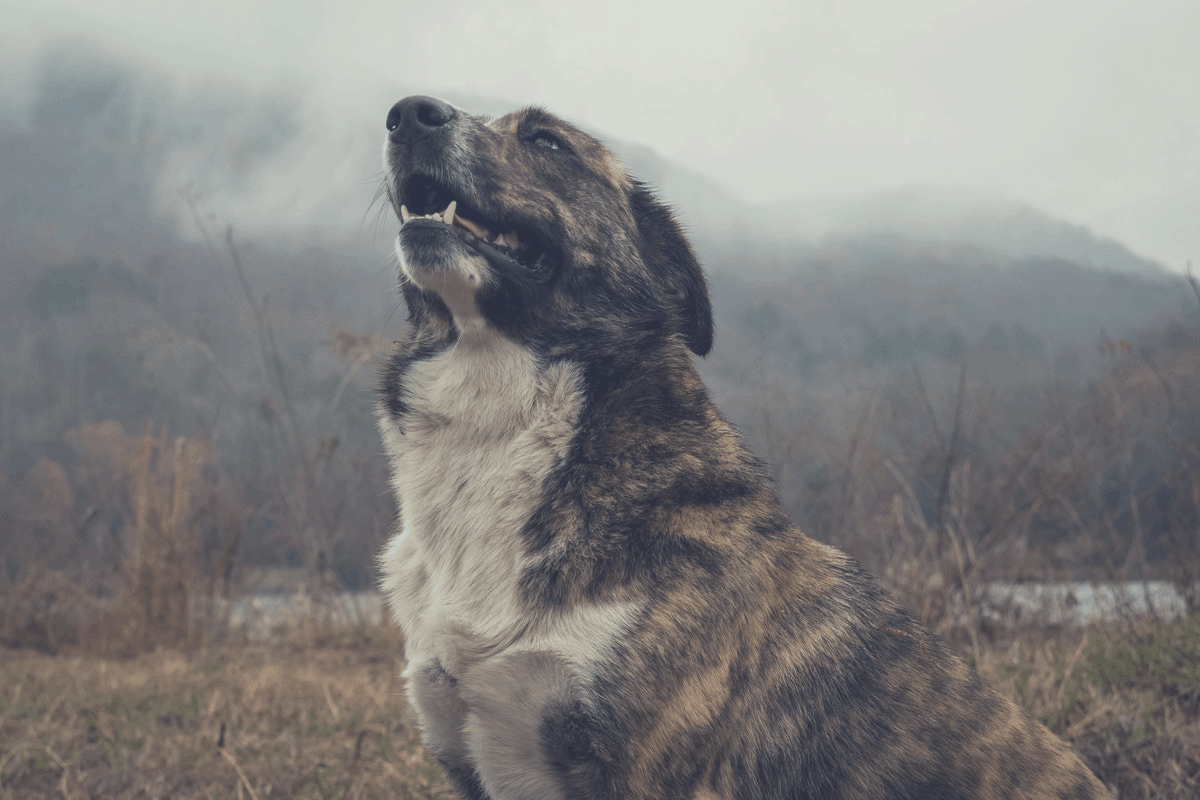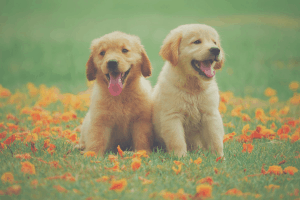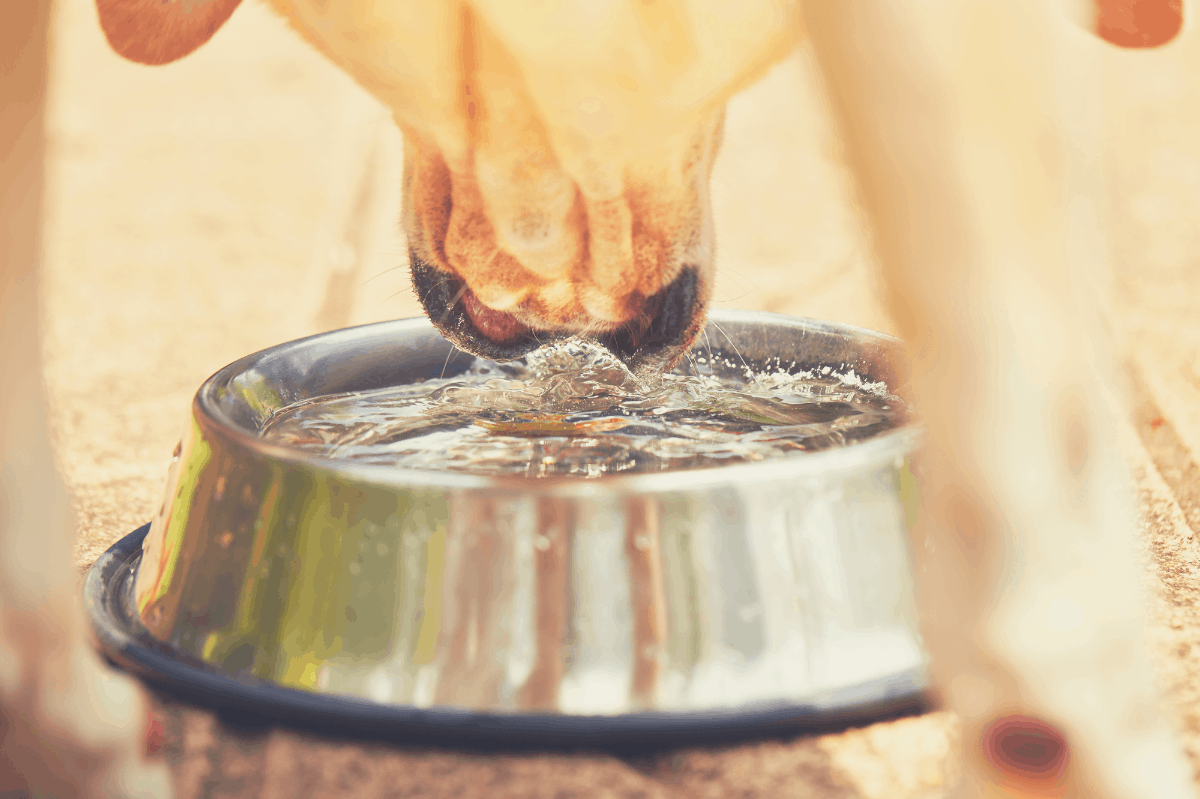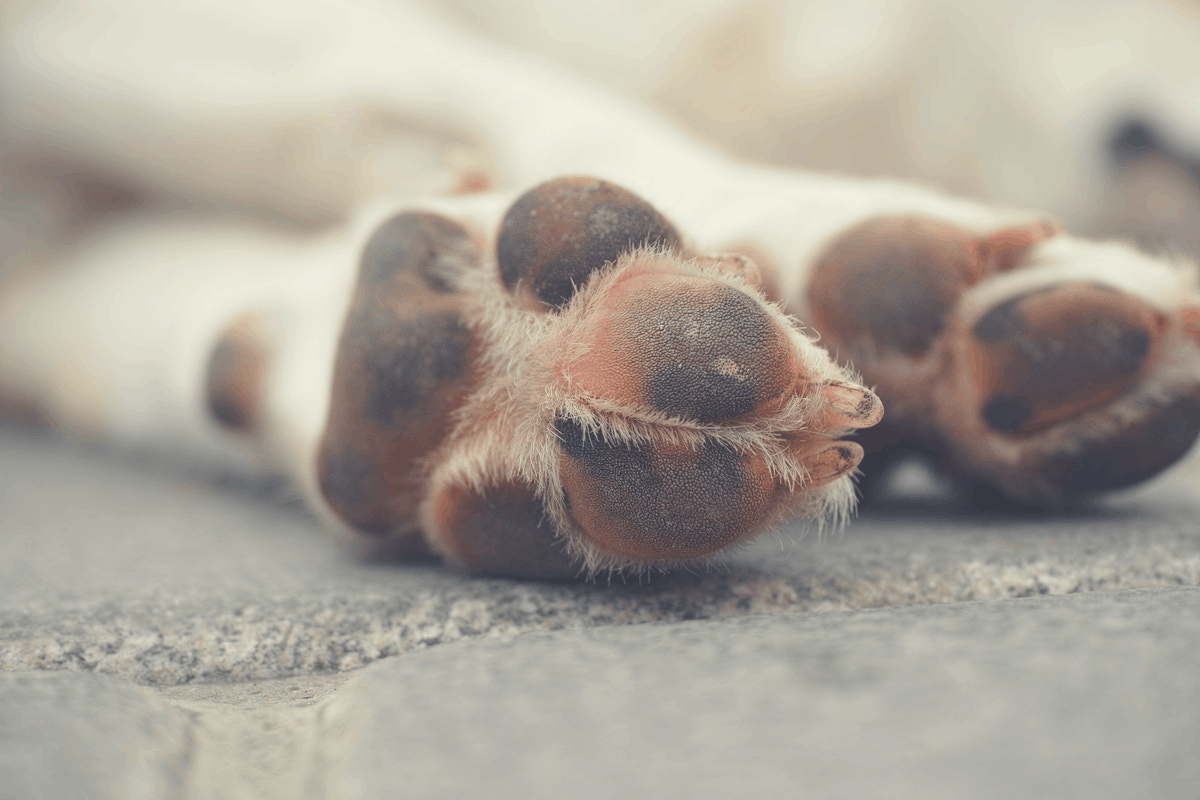The debate on whether a dog can sleep outside is one of the most divisive subjects in the dog lovers community. While one side of the aisle argues that keeping dogs outside is an unforgivable sin, others believe that canines can be perfectly kept outdoors under the right conditions.
Dogs can be kept outside in kennels and houses that provide free movement as well as protection from harsh weather elements including the sun and rain. Temperature-controlled external dog houses may come in handy for residents of regions that experience extreme cold or heat.
Therefore, every dog lover has to take a personal decision on whether to keep these adorable pets indoors or outdoors. Shall we take a deeper look into the decision to keep dogs outside and the advantages and risks associated with it?
Why should we Keep Dogs Indoors?
There lots of reasons why many dog lovers believe that their beloved pets should not sleep outdoors under any circumstances. Shall we take a look at the reasons these folks cite for their decision?
1. Member of the Family
Many dog lovers regard their pets as members of the family and allowing them to sleep outdoors is frowned upon as ostracism. Such folks believe relegating canines to sleep outside overnight is some sort of emotional abuse that can affect the mental health of the dog.
Additionally, an outdoor living environment limits the ability of the pooch to play with other members of the household at all times. This is viewed as a needless deprivation for both pets and humans. No wonder many folks sleep in the same beds as their beloved pooches.
2. Cold Weather
Residents of historically cold regions tremble at the thought of leaving their favorite canines to sleep outside because of the cold weather. Everyone’s aware of how low temperatures can get during winter and other periods of the year.
Sure, there may be potential benefits to the whole outside-sleeping experiment for dogs. But, the effects of the cold weather on the pooch’s quality of life and overall health may trump any of those benefits in the view of such people.
3. Aggression And Unruly Behavior

Dogs can be some of the sweetest animals on the planet under the right circumstances. But, they may also exhibit signs of unruly behavior and aggression when they’re left alone with minimal interaction.
Leaving your pooch to sleep outside can increase the risk of developing aggression and other forms of bad behavior. It is not uncommon to find dogs that sleep outdoors barking all day just to gain some attention.
Why Your Dog Should Be Kept Outside
While some dog lovers regard others that allow their pets to sleep outside as inconsiderate and irresponsible owners, that is not entirely true. There are several positives associated with keeping dogs outside overnight so let us take a deeper look into them too.
1. Carefree
Dogs are playful and carefree animals that love to move unhinged. While it is common to see them indoors in North America, and some parts of Europe, the general practice in other parts of the world is to keep them in kennels or other types of outdoor shelters.
The dogs are allowed to move freely overnight, getting lots of exercise along the way. The free movement also means properly trained dogs learn to take toilet breaks as and when needed which can be healthier for their overall quality of life.
The minimal restrictions sleeping outdoors affords also means these pooches can take night walks and engage in other forms of physical activity which tires them out by bedtime. This may translate to improved shuteye at night and the resultant benefits.
2. Socialization

It is not uncommon to find dogs from different homes on the same street playing together at night or during the early hours of the day. This is because dogs love to move in packs and socialize easily with others in proximity.
This easy access to engage with other dogs can help in the physical and mental development of your favorite fur-baby. This may also translate to better moods in the morning and minimal risk of the agitation and aggression common in moody dogs.
Besides, the ability to socialize can help these canines find mating partners and enjoy the other benefits associated with it.
3. Security
Residents of crime-riddled areas may benefit immensely from having their dogs sleeping outside. It is no secret that these pets can be instinctive to the point of smelling danger from a mile away.
Any unscrupulous characters roaming about in your street may get instantly spooked after seeing or hearing the barks of outdoor dogs. The result is potential warding off of possible break-ins and other forms of criminal attacks.
The majority of criminals avoid homes with dogs anyway, especially those who sleep outdoors. And your dog’s barks in the middle of the night about possible intrusions can also wake you up from the deepest realms of slumber. This should provide enough time to call the Police or take other defensive measures.
How To Give Maximum Comfort To Dogs Sleeping Outside
Even for furry-babies that sleep indoors, providing maximum comfort is non-negotiable. However, the situation becomes even more critical for those that are allowed outdoors overnight especially in extreme weather climates.
1. Provide Food and Water
Dogs that are kept outdoors require a regular supply of water and food. Our furry friends typically eat a certain amount of food within 24 hours so that should be easy to supply. Remember, dogs require more calories to stay active during chilly periods so do well to supply the right foods in winter.
However, the weather can determine how much water a specific pooch may need at any point in time. During heatwaves in the summer, your pooch may require considerably larger amounts of water compared to other periods of the year.
Thus, keeping an eye on the water tray and re-filling as soon as possible can be the best way to ensure proper hydration at all times.
2. Comfortable Living Environment
Dogs that sleep outside require a comfortable living environment to thrive. A separate sleeping and playing space can be a good start which is why experts recommend installing 2 kennels. A crate may be a bad option due to the limited size and dimensions which can restrict the canine’s movements.
Apart from residents of regions with mild year-round weather, the kennels chosen for your pooch should provide adequate protection from the weather elements. This means shading from not only the scorching sun but shelter from the rain and snow as well.
This should provide a sense of safety for the dog to seek refuge during periods of bad weather such as thunder and lightning. An air-conditioned unit can provide the ultimate comfort for your beloved pooch.
These units are recommended especially for residents in areas such as the East Coast where winters can be extremely cold and summers are extremely hot. These units allow you to keep the dog warm or cold depending on the prevailing weather at any point in time.
Just remember to keep an eye on the temperature to ensure that the dog is completely comfortable.
My dog sleeps more comfortably since I ordered the Petsfit Portable Wooden Dog House from Amazon 3 months ago. It is suitable for both indoor and outdoor use and protects my dog from the weather elements. It requires absolutely no form of assembly.
3. Provide A Companion Dog Or Other Pets
As stated earlier, dogs are social animals who can get bored easily when left alone. If you intend to keep them outdoors, companions may come in handy. This can mean another dog or other pets that get along with dogs such as rabbits, hamsters, ferrets, and birds.
These companions may keep the dog on its feet by ensuring lots of mutual playtimes. If a loner dog is showing signs of aggression or loneliness, why not bring in another dog or pet to calm down the often charged atmosphere.
4. Dog Jacket
Is your dog too small or having too little fur to regulate its body temperature properly while staying outdoors? Why not get it a warm jacket? This can come in handy for pet lovers that may not be able to afford an airconditioned kennel.
Choose the right coat size with minimal risk of rubbing on the skin or slipping off so the pooch can feel comfortable on cold winter nights. Additionally, try to keep the dog’s coat thick when grooming around winter to increase the ability to self-regulate his body temperature.
My dog sleeps cozy even during the harshest winter temperatures since I ordered the Thundershirt Classic Dog Anxiety Jacket from Amazon 3 months ago. It offers patented gentle pressure to calm fear, excitement, and anxiety so the dog can enjoy amazing nights.
5. Interactive Play
A happy dog is one that stays busy and if you’ve resolved to keep a pooch outdoors, interactive toys could make a huge difference in their lives. Puzzles and interactive toys can provide excellent mental stimulation for canines by giving them a task or problem to solve.
This may offer mental stimulation for the dog and eliminate boredom which can lead to excessive barking, whining, and destruction of things.
Dogs who have always stayed indoors may suffer separation anxiety when their sleeping environment changes overnight. These interactive toys can reduce this anxiety and make it easier for them to adjust to the new surroundings.
My dogs love solving the puzzles in the Outward Hound Hide-A-Squirrel Squeaky Puzzle Plush Dog Toy from Amazon. It offers new ways for my pooch to learn and have fun, especially in my absence. I couldn’t recommend it highly enough.
Risks of Dogs Sleeping Outside
Dogs can be perfectly fine outdoors but that does not make them immune from risks. Here are a few concerns that should be taken into account if you want your pooches to sleep outside.
1. Heatstrokes
Summers may get extremely hot in certain areas and exposing dogs to these conditions outdoors can lead to several side effects including heatstrokes. The condition occurs when the pooch gets extremely hot to the point where they’re unable to reduce their body temperatures through panting.
In most cases, providing some sort of shade and cool drinking water can resolve the issue. Also, you may want to call a Vet immediately if the dog is showing signs such as excessive panting, excessive drooling, vomiting, drowsiness, or lethargy.
Breeds such as pugs and bulldogs are typically more prone to heatstrokes as well as those with thick furs, pups, and older dogs.
2. Hypothermia
Letting your dogs sleep outside in the cold can increase the risk of hypothermia, a medical condition that may result in extremely low body temperatures. The average temperature of a dog ranges between 100 degrees to 102.5 degrees Fahrenheit.
A significant drop below the minimum range stipulated above can put a dog’s life at risk especially when it drops to 82 degrees Fahrenheit or below, which is the point where severe hypothermia may be triggered.
Severe forms of hypothermia may lead to a wide range of side effects including death in even the healthiest dogs. If you live in a climate with extreme winters, taking the necessary steps to keep your beloved pooch warm can be lifesaving.
A few of the common side effects of hypothermia include:
- Fatigue
- Shivering
- Low blood pressure
- Breathing difficulties
- Muscle stiffness
- Skin paleness
- Fixated and dilated pupils
3. Frozen Drinking Water

Dedicated dog owners try to provide the right amounts of water at all times to enhance the proper hydration of their pets day and night. One of the biggest problems dogs may face is frozen drinking water.
It is no secret that outdoor temperatures can plummet to levels below 32 degrees during winter. This may increase the risk of frozen drinking water among those who use metallic water trays for their canines.
Drinking extremely cold water can further lower the dog’s body temperature. This may also increase the risk of suffering hypothermia.
Dogs Who Should Not Sleep Outside
Not all dogs can thrive when allowed to sleep outdoors. It is important to analyze your pooch to determine whether the outdoor living environment will not expose him to unnecessary risks. Be wary of allowing any of the dogs below to sleep outside.
- Puppies: Puppies may suffer when allowed to sleep outdoors due to their often shallow coats as well as lower levels of immunity. These immature dogs may easily suffer hypothermia and other health scares when exposed to the outdoors during cold weather which can lead to health complications and even death.
- Older Dogs: Just as puppies may not have the right level of immunity to withstand cold weather, older dogs can also struggle due to weaker immunities. After a lifetime of serious health complications, the immunity levels begin to decline which may expose oldies to health scares they could previously beat during their peak years of health.
- Arthritic Dogs: Arthritis is a common condition that affects dogs as they grow older. If your canine has been diagnosed with the condition, keeping it indoors or in an airconditioned outdoor kennel could be lifesaving. It is no secret that cold weather aggravates muscle pain and discomfort so protecting them from severe weather elements can improve their overall quality of life.
- Small Toy Breeds: Do you own a Greyhound, Chihuahua, or Beagle? If yes, allowing these breeds to sleep outside could be a bad idea. This is thanks to their thin bodies and fur which may offer minimal protection from the cold.
Conclusion
Dogs can sleep outside without problems as long as their age, health, breed, and climate permit. While the majority of North Americans keep their dogs indoors or even share their beds, it is common to find these pets living outdoors in other parts of the world.
As long as you provide a comfortable sleeping environment that offers protection from the weather elements, your dog may sleep outside without problems. But check in with a Vet before making any final decisions.
Who knows, your pet may be better off staying indoors for one medical reason or another.
